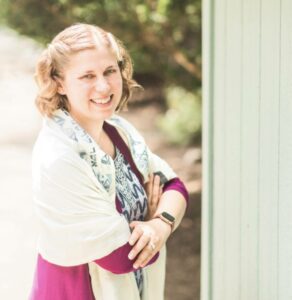
Rabbi Elyssa Cherney
Parshat B’ha’lotecha
This week, our Torah portion literally means: when you rise up. It refers to rising the seven lamps before the Tabernacle but also in the rising before G-d to offer sacrifices.
It used to be that G-d spoke and the people listened. They followed that which was commanded because they believed in the power of G-d. There are times in our society today when power is certainly attained through the organization of people and money.
But is there still a reciprocal relationship with G-d such as the Israelites had? The Israelites — specifically through the Levites — would offer sacrifices and obey G-d’s teachings in exchange for divine protection of their people.
This past Shavuot, I was struck by the changing nature of the people’s relationship with G-d from when they received the Torah and now. The words found in this week’s Torah portion, B’ha’lotecha, are no different.
G-d’s words are specific and informative, as G-d instructs Moses on how to tell the Levites to offer sacrifices to G-d. The boundaries around sacrifices and consequences for failing to do so are clearly laid out and expected to be followed. The idea is that the ownership of everything we have is truly G-d’s — not ours.
As such, the Israelites acknowledged their reliance on G-d by having a system in which G-d was given the first fruits of their labor. This created a system in which the Israelites had ongoing humility toward a greater power. Therefore, the society was sustained by a communal belief and shared actions.
Today, the mental image of G-d has transformed into one that would be unrecognizable to Moses, Aaron and Miriam, who awaited their divine instructions. Talking to G-d is no longer a two-way relationship — rather, G-d’s voice can be heard in the self-reflection of those who seek G-d’s wisdom.
Prayer acts as a common form in which to have set times and words with which to connect with G-d and humanity. The actions of giving sacrifices toward a shared belief and power have significantly altered.
There are many Jews who give their time and money to support the communities of which they are a part. Yet, I don’t believe it’s due to fear of G-d’s consequences or to maintain a specific relationship with G-d but rather to help the community thrive.
In B’ha’lotecha, a certain structure of how sacrifices are carried out is put in place. The emphasis is put on who is close enough to G-d to carry out the sacrifices on behalf of the community. Numbers 8:22 — “Thereafter the Levites were qualified to perform their service in the Tent of Meeting, under Aaron and his sons. As G-d had commanded Moses in regard to the Levites, so they did to them.”
Moses and Aaron prepare the Levites for the task of communal service to G-d, and this becomes their ongoing job. They are to serve in the Tent of Meeting from age 25 for 25 years, and then their service is excused at the age of 50. In turn, the community cares for the Levites, and their service ensures G-d’s protection of the whole community.
We no longer have set sacrifices that we participate in or Levites acting on our behalf. We do have the ability to give of that which belongs to us — our own form of sacrifices.
G-d uses this Torah portion to set out the guidelines by which we should create our society. It makes me think about how much more our communities would thrive if we were willing and able to give them the best of our personal resources. Not only financial sustenance for our organizations which act for the benefit of all but for our expertise, too. Many have the resources of our education and specialized training at our disposal.
Perhaps, if we put our belief back in each other to offer the best of ourselves, we could create a major shift for our communities. Our self-sacrifices may even cause us to feel the power of G-d once again.
Rabbi Elyssa Cherney leads life cycle rituals for couples and families in Philadelphia. She runs the organization TacklingTorah to help everyday people connect their Judaism to holy moments in their lives. The Board of Rabbis of Greater Philadelphia is proud to provide diverse perspectives on Torah commentary for the Jewish Exponent. The opinions expressed in this column are the author’s own and do not necessarily reflect the view of the Board of Rabbis.



